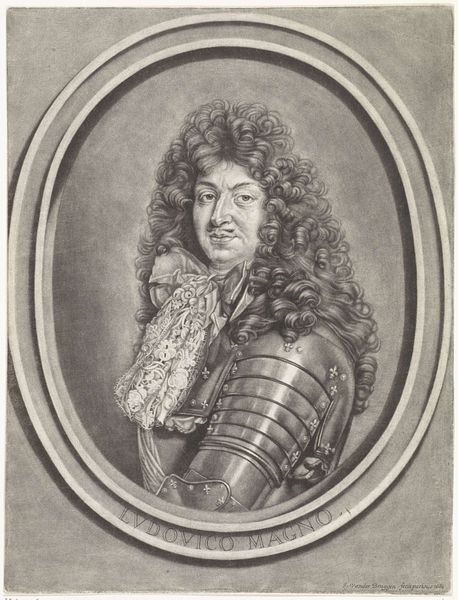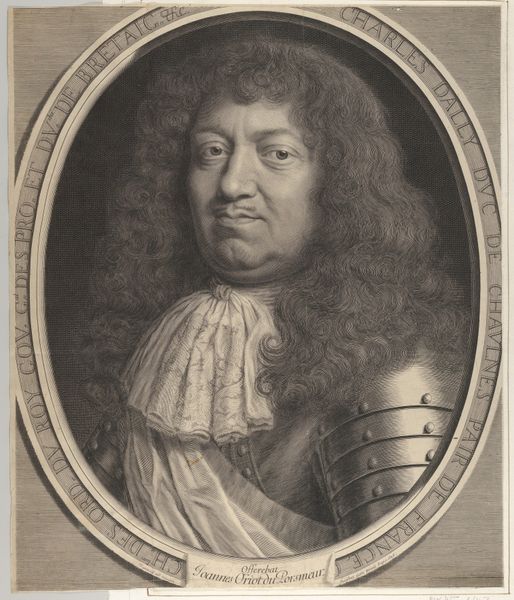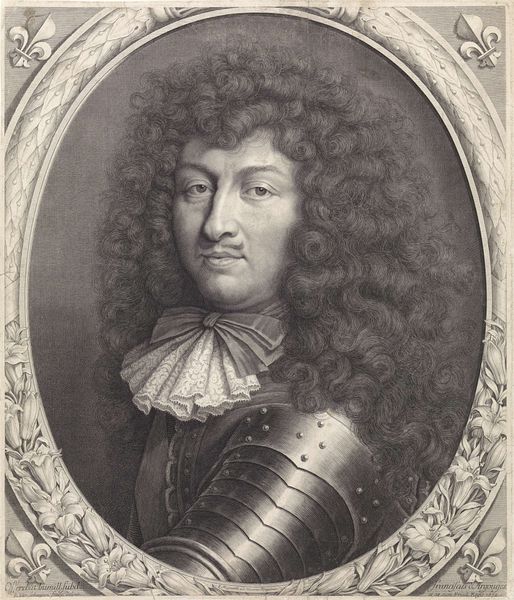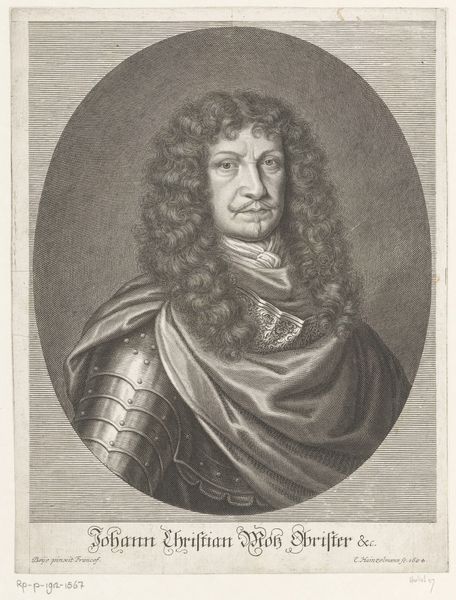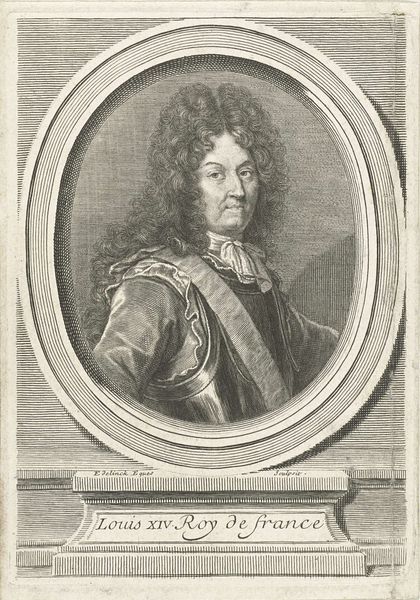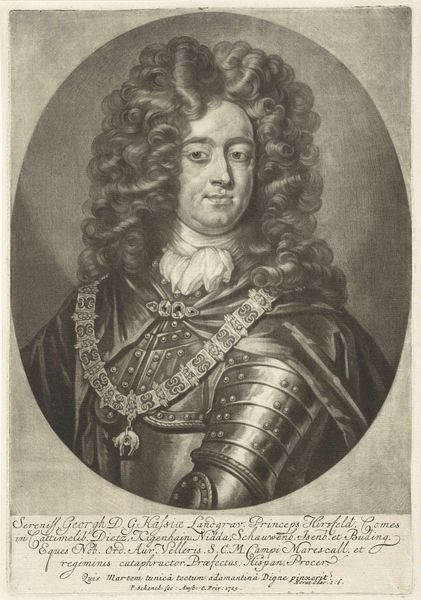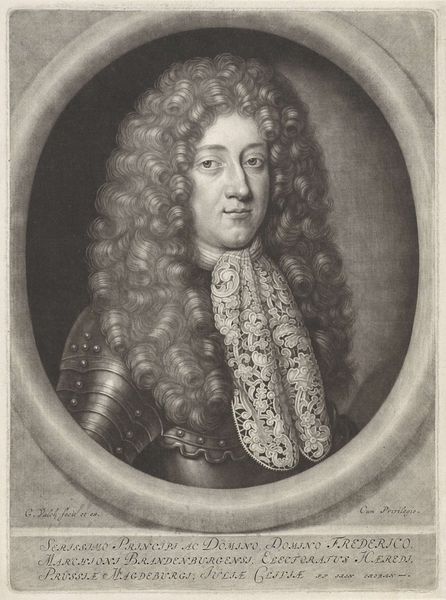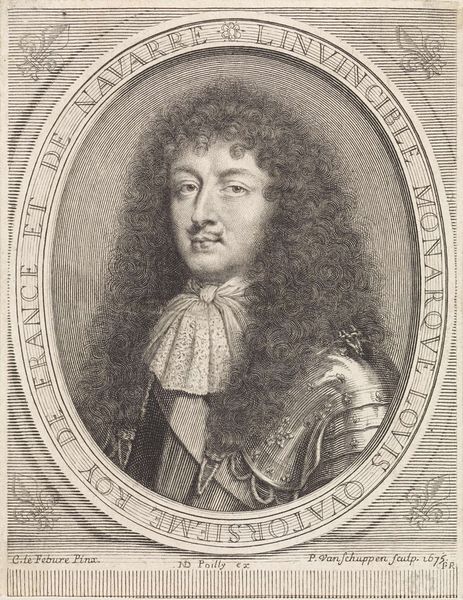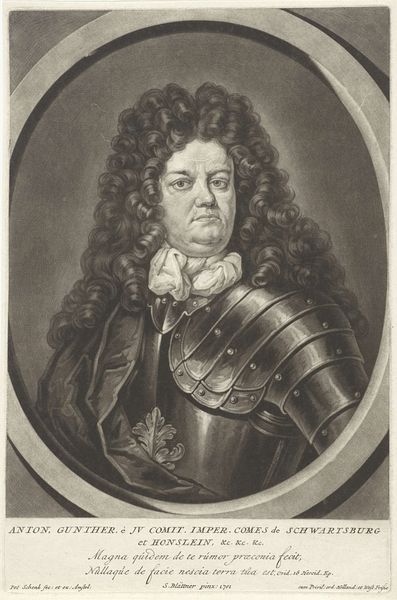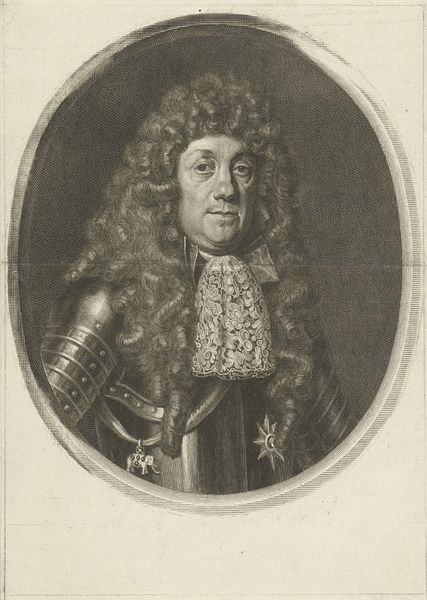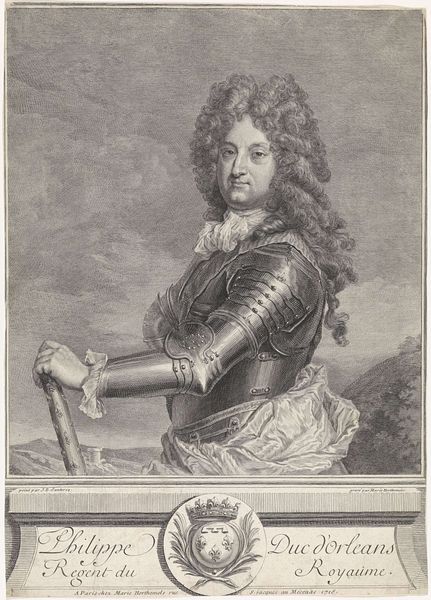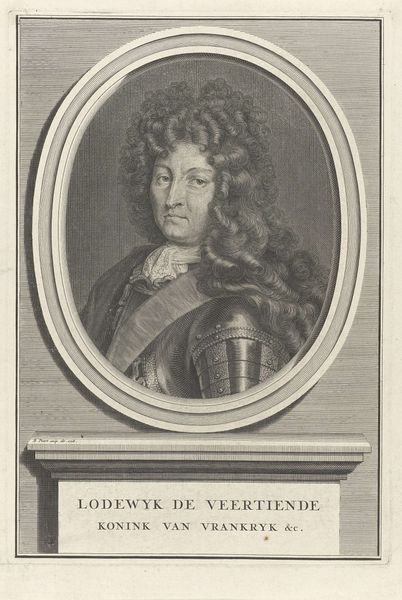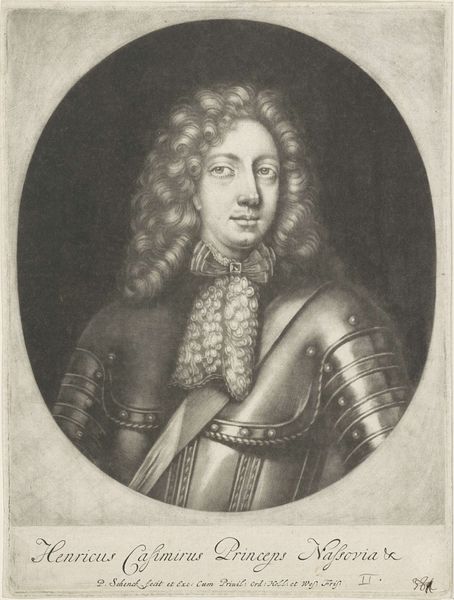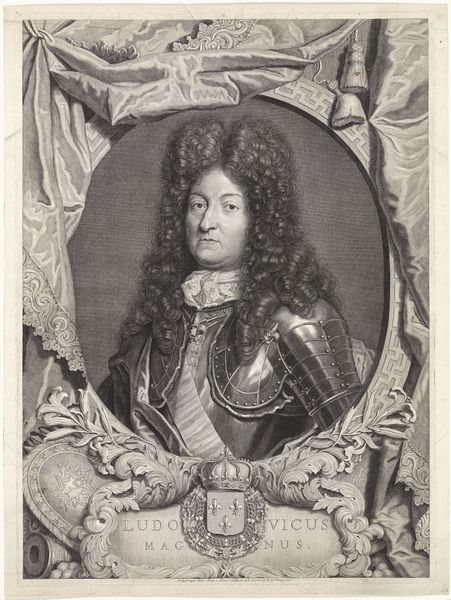
print, engraving
#
portrait
#
baroque
# print
#
old engraving style
#
caricature
#
history-painting
#
engraving
Dimensions: height 136 mm, width 89 mm
Copyright: Rijks Museum: Open Domain
Jan Lamsvelt made this portrait of William III, Prince of Orange using engraving, a printmaking technique, sometime between the late 17th and early 18th centuries. Engraving demands great dexterity, with the design meticulously incised into a metal plate, traditionally copper. Ink is then applied, and the surface wiped clean, leaving ink only in the engraved lines. The plate is pressed onto paper, transferring the image. The crisp lines and fine details we see here are testament to Lamsvelt’s skill. But consider also what this process meant in its time. Printmaking allowed images to be reproduced and distributed widely, playing a key role in disseminating knowledge and propaganda. This portrait would have served to promote William's image, reinforcing his power and status. So, while this may seem like a simple portrait, it's also a product of its time, reflecting both artistic skill and the social and political forces at play. It shows how deeply intertwined art, craft, and power can be.
Comments
No comments
Be the first to comment and join the conversation on the ultimate creative platform.
